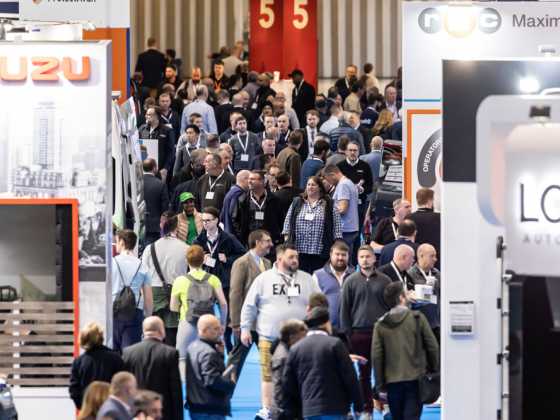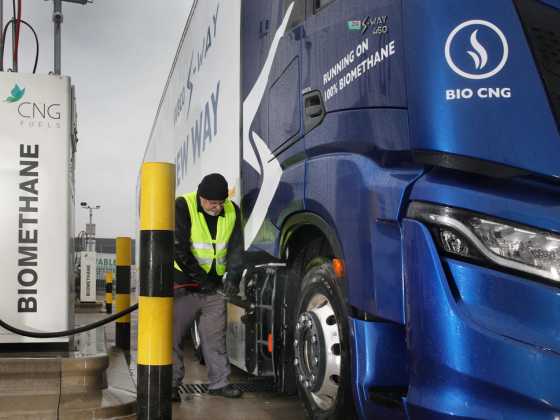The quiet revolution
Electric vehicle sales have dramatically risen since the start of 2016. With the green approach to driving gaining momentum, Richard Bruce, head of the Office for Low Emission Vehicles, asks whether it is the start of a continuing trend?

A quiet revolution is taking place on UK roads as thousands of drivers make the switch to electric driving. The first quarter of 2016 saw over 17,000 claims for the government’s Plug-in Car Grant, up 109 per cent on the same quarter last year. There are now over 60,000 electric vehicles on our roads.
With a new electric car sold every 13 minutes in the first three months of 2016, the UK electric vehicle market has never been stronger. Fleets are leading the way and the move to zero emission motoring is inevitable. Helping that process along and placing the UK at the forefront is the Office for Low Emission Vehicles (OLEV). The UK offers one of the most comprehensive packages of support in the world, with over £600 million allocated to support electric vehicle development, manufacture and uptake in the UK.
Helping businesses to make the switch, the government’s Plug-in Car Grant offers up to £4,500 off the cost of a new electric car, and the Plug-in Van Grant up to £8,000 off the cost of an electric van. Add to this extremely low driving costs (from 2p per mile compared to 10-12p per mile for petrol/diesel cars), exemption from road tax, savings on National Insurance contributions and Benefit-in‑Kind tax breaks for company car drivers and the business model for going electric is clear.
Making the easy switch
Driving an electric car has also never been easier. There are more models than ever – from 100 per cent electric cars and vans, to plug-in hybrids, extended‑range and fuel cell electric cars in a variety of styles. The government’s continued investment in infrastructure has helped to provide UK drivers with over 11,000 public chargepoints and the largest rapid charger network in Europe – over 96 per cent of motorway services now have rapid chargers enabling electric cars to be recharged to 80 per cent in under 30 minutes.
Many businesses across the UK are realising the benefits of switching their fleets to electric. To highlight those leading the way, Go Ultra Low, a joint government and automotive industry campaign to drive uptake of electric vehicles, launched its new Go Ultra Low Companies scheme this week. Similar to Investors in People, the scheme celebrates UK businesses that are embracing electric vehicles and who aim to have at least five per cent of their fleet consisting of electric vehicles by 2020. The fact that large corporations like Microsoft, front line service providers like the London Fire Brigade and small businesses have all signed up shows that electric vehicles are suitable for every fleet.
Electric uptake
The move to electric driving is gathering pace across the UK. Bristol, Nottingham, Milton Keynes and London recently won though a highly competitive process to become Go Ultra Low Cities. They will share £35 million of government funding to become global exemplars for electric vehicle uptake. Not only will this provide cutting edge infrastructure giving thousands of motorists access to fast, convenient chargers, they will also offer local incentives such as free parking and use of bus lanes to make EVs an even more attractive option. Such was the quality of bids that Dundee, Oxford, York and the North East shared a further £5 million to take forward innovative projects meaning that a total of £40 million of government funding will go to local electric vehicle schemes. Every one of these authorities and many more around the country are committed to driving up the number of electric vehicles, making it even more attractive for businesses to switch.
The global auto market is approaching a tipping point where electric power will start E to take over from the internal combustion engine. Businesses have a crucial role to play in reaching this point. Electric vehicles offer cleaner and quieter motoring plus multiple short and long term financial benefits for companies and their employees to enjoy.
Businesses across Britain are already offering electric cars as company cars and operating electric vehicles on their fleets. I urge you to join them.
Hydrogen funding
Plans to make nearly every vehicle in the country zero-emission by 2050 have been encouraged with the launch of a £2 million government fund to encourage more businesses to switch to hydrogen-fuelled vehicles.
The Fuel Cell Electric Vehicle (FCEV) Fleet Support Scheme, launched by the government’s Office for Low Emission Vehicles (OLEV), will allow local authorities, health trusts, police forces, fire brigades and private companies to bid for funding to add hydrogen-powered vehicles to their fleets.
If successful, the £2 million fund could bring up to 100 more hydrogen fuel cell cars and vans onto British roads by next Spring – triple the number of vehicles currently in use. The money will cover up to 75 per cent of the costs of new vehicles bought by April 2017, as well as the cost of running them for up to three years.
The new fund follows the government committing £5 million in 2014 through the Hydrogen for Transport Advancement Programme for 12 hydrogen refuelling stations.
Transport Minister Andrew Jones, who opened the second of those stations at the National Physical Laboratory in Teddington, said: “We are always looking at new ways to make the vehicles of the future cleaner, and hydrogen fuel cells are an important part of our vision for almost all cars and vans to be zero-emission by 2050.
“This funding, along with the growing network of hydrogen refuelling stations opening in England, will help businesses and the public sector to get on board with this exciting technology. This is further proof that we are leading the way in making journeys cleaner and protecting the environment.”
All 12 stations are expected to be open by the end of the year, which is a significant step towards a national network. The news has been fairly well received within the industry.
Simon Peevers, RAC Business spokesman, said: “Given the range of benefits that come with running zero and low emission vehicles in terms of running costs, there is certainly the will among businesses to make a change and realise those cost savings, if they can overcome the initial outlay. So it’s welcome that the government recognises the importance of supporting fleets to encourage the transition to zero-emission vehicles.
“Within the wider context of the fleet sector it remains to be seen whether £2 million is enough to make a serious impact on encouraging businesses to upgrade their vehicles, but it is a step in the right direction as long as there is the infrastructure in place to support the new technology.”
Bids for the FCEV Fleet Support Scheme must be submitted by Monday 4 July 2016. Successful bidders will be informed later this year.
Further Information
goultralow.com/fleet
www.gov.uk/government/organisations/office-for-low-emission-vehicles






